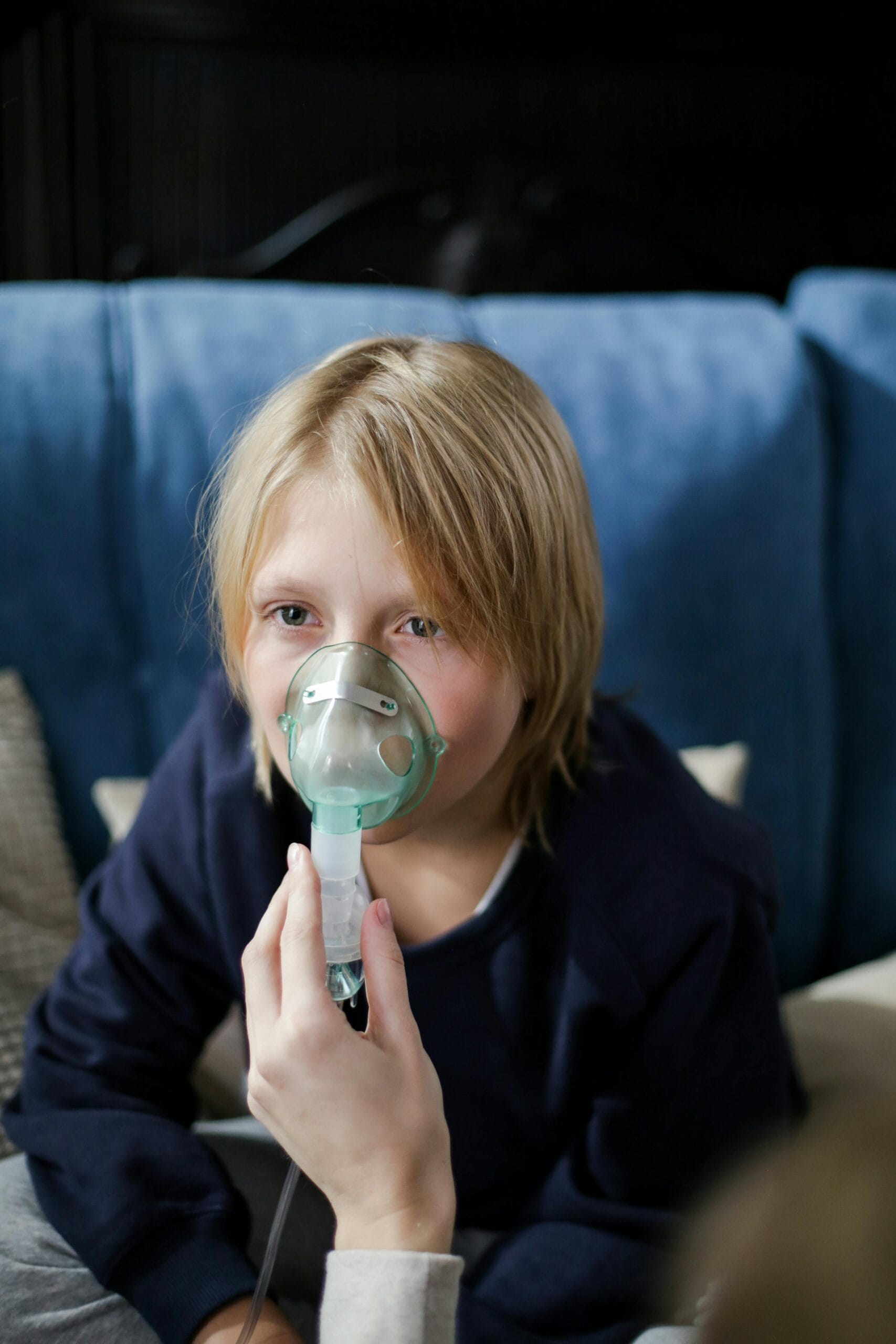This blog will explore “Authentic Home Remedies for Bronchiolitis A Comprehensive Guide” based on age groups, from infants to adults. We’ll also emphasize the importance of understanding the role alternative medicine plays in easing symptoms and strengthening the immune system.
Bronchiolitis, a common viral respiratory infection affecting the small airways in the lungs, primarily targets infants and young children. While conventional medical approaches, such as oxygen therapy and bronchodilators, are widely used, there is growing interest in alternative medicine to manage bronchiolitis symptoms and support recovery. Integrating natural remedies with traditional medical treatment can offer holistic care and relief.
Understanding “Bronchiolitis” Symptoms and Risks
Bronchiolitis typically presents in children under the age of two, but older individuals with weakened immune systems or chronic respiratory conditions can also develop it. The most common cause is the respiratory syncytial virus (RSV), although other viruses like influenza, parainfluenza, or adenovirus can also trigger it.
“Natural Relief from Bronchiolitis: A Step-by-Step Guide for All Ages” provides not just practical remedies, but also hope and comfort to families navigating the challenges of bronchiolitis. With gentle, natural approaches, you can help your loved ones breathe easier, supporting their recovery with care, love, and the power of nature. Healing is not just about medicine—it’s about nurturing and strengthening the body and spirit.
“Authentic Home Remedies for Bronchiolitis A Comprehensive Guide” will sharing a Common Symptoms of Bronchiolitis
- Runny nose
- Persistent cough
- Wheezing
- Rapid breathing (tachypnea)
- Difficulty feeding or drinking
- Mild fever
- Fatigue or irritability
While bronchiolitis is usually self-limiting, lasting 1-2 weeks, the symptoms can become severe, especially in infants, requiring hospitalization.
The Role of Alternative Medicine in Bronchiolitis Management
Alternative medicine can complement traditional treatment to help reduce inflammation, clear mucus, and boost overall immunity. By using natural remedies, caregivers can potentially ease the severity of symptoms and reduce recovery time. It’s essential to use these remedies under the guidance of a healthcare professional, especially for infants and young children.
Age-Wise Remedies for Managing Bronchiolitis
This section covers five alternative remedies for each age group, providing a step-by-step guide to managing bronchiolitis naturally. The remedies focus on supporting the body’s immune response, alleviating congestion, and improving respiratory function.
Infants (0-2 Years Old)
Infants are the most vulnerable to bronchiolitis. Since their immune systems are still developing, treatments must be gentle yet effective.
- Saline Nasal Drops
Step: Administer 1-2 drops of saline solution in each nostril, then gently suction the mucus with a nasal aspirator.
Effect: Helps clear blocked nasal passages, easing breathing. - Steam Therapy
Step: Sit in a steamy bathroom for 10-15 minutes with the infant. Ensure the water is hot enough to produce steam but never place the baby directly in the shower.
Effect: Moisture helps loosen mucus and reduces congestion. - Eucalyptus Oil Infusion
Step: Add a few drops of eucalyptus oil to a diffuser. Ensure the room is well-ventilated, and never apply the oil directly to the infant’s skin.
Effect: Eucalyptus oil has natural antiviral and anti-inflammatory properties, making it easier for the baby to breathe. - Gentle Chest Rub with Coconut Oil
Step: Warm a small amount of coconut oil and gently massage the infant’s chest and back. Avoid commercial mentholated rubs, which may be too strong.
Effect: The gentle massage and mild anti-inflammatory effects of coconut oil help soothe respiratory muscles. - Probiotic Drops
Step: Consult your pediatrician before giving probiotic drops specifically designed for infants.
Effect: Probiotics help boost gut and immune health, which may aid in fighting off viral infections like bronchiolitis.
Note: Always consult a healthcare provider before using essential oils or probiotics with infants to ensure safety.
Toddlers (2-5 Years Old)
Toddlers may still struggle with bronchiolitis, and gentle remedies are key for this age group.

- Honey and Warm Water
Step: Mix one teaspoon of raw honey in warm water and give it to the child before bedtime.
Effect: Honey soothes the throat and has mild antiviral properties, reducing coughing. (Not recommended for children under one year due to the risk of botulism.) - Elderberry Syrup
Step: Offer one teaspoon of elderberry syrup once or twice a day. Elderberry syrups designed for children are widely available.
Effect: Elderberry has been shown to shorten the duration of colds and other respiratory infections, strengthening the immune response. - Warm Chamomile Tea
Step: Brew a mild chamomile tea and allow it to cool before offering small sips to the child.
Effect: Chamomile helps reduce inflammation and promotes relaxation, easing respiratory discomfort. - Essential Oil Chest Rub
Step: Mix a drop of diluted lavender or frankincense essential oil with coconut oil and massage onto the child’s chest.
Effect: These oils help reduce inflammation and calm the child, supporting easier breathing. - Warm Compress on the Chest
Step: Apply a warm (not hot) compress to the chest for 10-15 minutes.
Effect: Helps to relax the chest muscles, improve circulation, and alleviate congestion.
Note: Be cautious with essential oils, ensuring they are appropriately diluted and safe for children.
Children (6-12 Years Old)
At this age, children can tolerate a wider range of alternative remedies.

- Peppermint Steam Inhalation
Step: Add a few drops of peppermint oil to hot water and allow the child to inhale the steam under supervision.
Effect: Peppermint oil helps to open airways and reduce congestion. - Garlic Syrup
Step: Mix a small amount of garlic-infused honey and offer it twice daily.
Effect: Garlic is a powerful antimicrobial agent that can help fight the viral cause of bronchiolitis. - Licorice Root Tea
Step: Brew a cup of licorice root tea and offer small amounts throughout the day.
Effect: Licorice root soothes the airways, reduces inflammation, and eases coughing. - Turmeric Golden Milk
Step: Prepare golden milk by mixing a teaspoon of turmeric powder in warm milk, adding a pinch of black pepper and honey.
Effect: Turmeric has anti-inflammatory properties, helping to reduce bronchial inflammation. - Herbal Steam Bath
Step: Add thyme or rosemary to a pot of hot water and allow the child to inhale the steam.
Effect: These herbs have antiseptic and decongestant properties that help alleviate respiratory symptoms.
Teenagers (13-18 Years Old)
Teenagers can benefit from more robust alternative treatments, including diet and lifestyle changes.

- Ginger and Honey Tea
Step: Boil fresh ginger in water and mix with honey. Drink it twice daily.
Effect: Ginger has potent anti-inflammatory and antiviral properties, supporting respiratory health. - Licorice Root Lozenges
Step: Use licorice root lozenges available in health stores for soothing the throat and reducing cough.
Effect: Helps with mucus buildup and reduces irritation in the bronchial tubes. - Neti Pot for Nasal Irrigation
Step: Use a neti pot with a saline solution to flush out nasal passages.
Effect: Clears the sinuses and eases breathing by reducing mucus. - Astragalus Herbal Supplement
Step: Take astragalus in capsule or tea form, as recommended by a healthcare provider.
Effect: Astragalus is an immune-boosting herb that helps the body fight respiratory infections. - Mullein Tea
Step: Brew a cup of mullein tea and drink once a day to support respiratory health.
Effect: Mullein is known to help clear the lungs and reduce inflammation in the airways.
Adults
While bronchiolitis is rarer in adults, those with chronic lung issues or weakened immune systems can benefit from these remedies.
- Herbal Infusions (Thyme and Sage Tea)
Step: Brew thyme and sage together for a potent tea to drink twice a day.
Effect: Both herbs have strong antiseptic and decongestant properties. - Herbal Vapors (Essential Oil Steam)
Step: Combine eucalyptus and peppermint oils in a bowl of hot water and inhale deeply for 10-15 minutes.
Effect: Helps clear mucus and soothes inflamed airways. - Ginger-Turmeric Paste
Step: Mix equal parts fresh ginger and turmeric into a paste. Take a teaspoon twice daily with warm water.
Effect: Both ingredients have anti-inflammatory and immune-boosting properties. - Onion Poultice for Chest
Step: Warm sliced onions in a cloth and apply it to the chest for 15-20 minutes.
Effect: Onion has antimicrobial properties and the warmth helps loosen mucus. - N-acetylcysteine (NAC) Supplement
Step: Take NAC supplements as directed to support lung health and reduce mucus buildup.
Effect: NAC acts as a mucolytic, breaking down mucus in the lungs.
Conclusion
Bronchiolitis can be a daunting respiratory condition, but alternative remedies offer a holistic approach to managing symptoms and supporting recovery. Whether for infants or adults, these age-specific remedies can complement conventional medical treatments and help in relieving symptoms.
Always consult a healthcare professional before starting any alternative treatments, especially for young children or individuals with underlying health conditions. While these remedies provide support, bronchiolitis can escalate quickly, so it’s vital to seek medical help if symptoms worsen.
References
- Mayo Clinic. (2023). Bronchiolitis. Available at: Mayo Clinic
- National Center for Complementary and Integrative Health (NCCIH). (2023). Herbs at a Glance. Available at: NCCIH
- MedlinePlus. (2023). Herbal Medicine in Respiratory Conditions. Available at: MedlinePlus
- WebMD. (2023). Alternative Therapies for Respiratory Health. Available at: WebMD
FAQ’S
- What is bronchiolitis, and who is most at risk?
Bronchiolitis is a viral respiratory infection that affects the small airways in the lungs, commonly caused by the respiratory syncytial virus (RSV). It primarily affects infants and young children under the age of two but can also occur in older individuals with weakened immune systems or chronic respiratory conditions.
- Can natural remedies effectively treat bronchiolitis?
Natural remedies can help alleviate symptoms of bronchiolitis and support the immune system. Remedies like steam therapy, saline nasal drops, and certain herbal teas can complement conventional medical treatments. However, it’s important to consult a healthcare provider before using alternative remedies, especially for young children.
- What natural treatments are safe for infants with bronchiolitis?
For infants, gentle remedies such as saline nasal drops, steam therapy, and eucalyptus oil diffusion (indirectly) can help ease breathing. It’s crucial to avoid direct use of essential oils on infants and always seek medical advice before trying any home treatments.
- Are herbal remedies like ginger, garlic, or turmeric effective in managing bronchiolitis?
Yes, herbs like ginger, garlic, and turmeric have anti-inflammatory and immune-boosting properties. They can be used in teas, syrups, or pastes to support respiratory health and reduce inflammation. These are more suitable for older children, teenagers, and adults.
- When should I seek medical attention for bronchiolitis?
While mild cases of bronchiolitis often resolve on their own within 1-2 weeks, medical attention should be sought if symptoms worsen. Watch for rapid breathing, difficulty feeding, dehydration, or extreme fatigue, especially in infants, as these may indicate a need for hospitalization or more intensive care.
These FAQs offer essential information to readers, helping them understand the condition and how natural remedies can be safely used to manage bronchiolitis.
